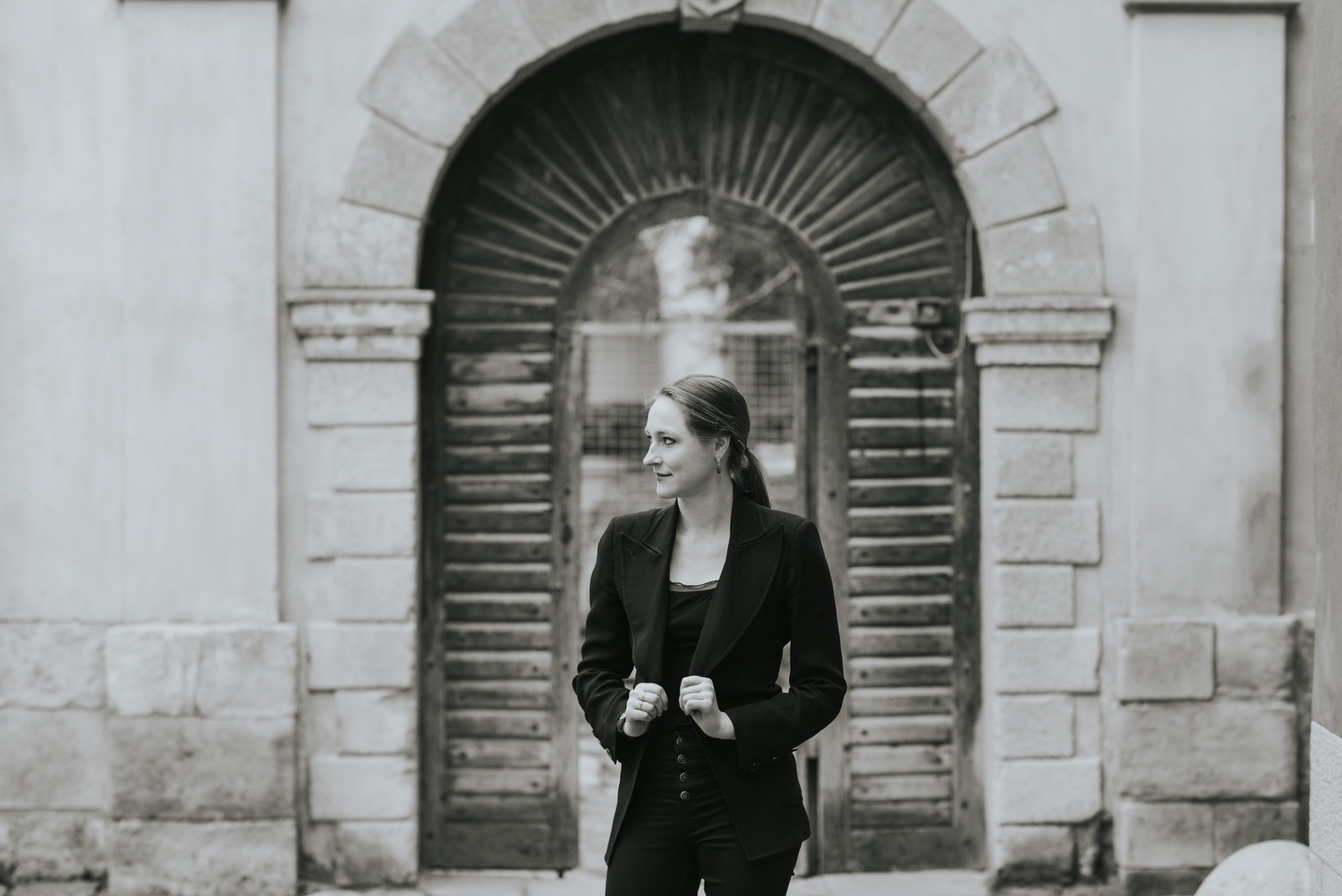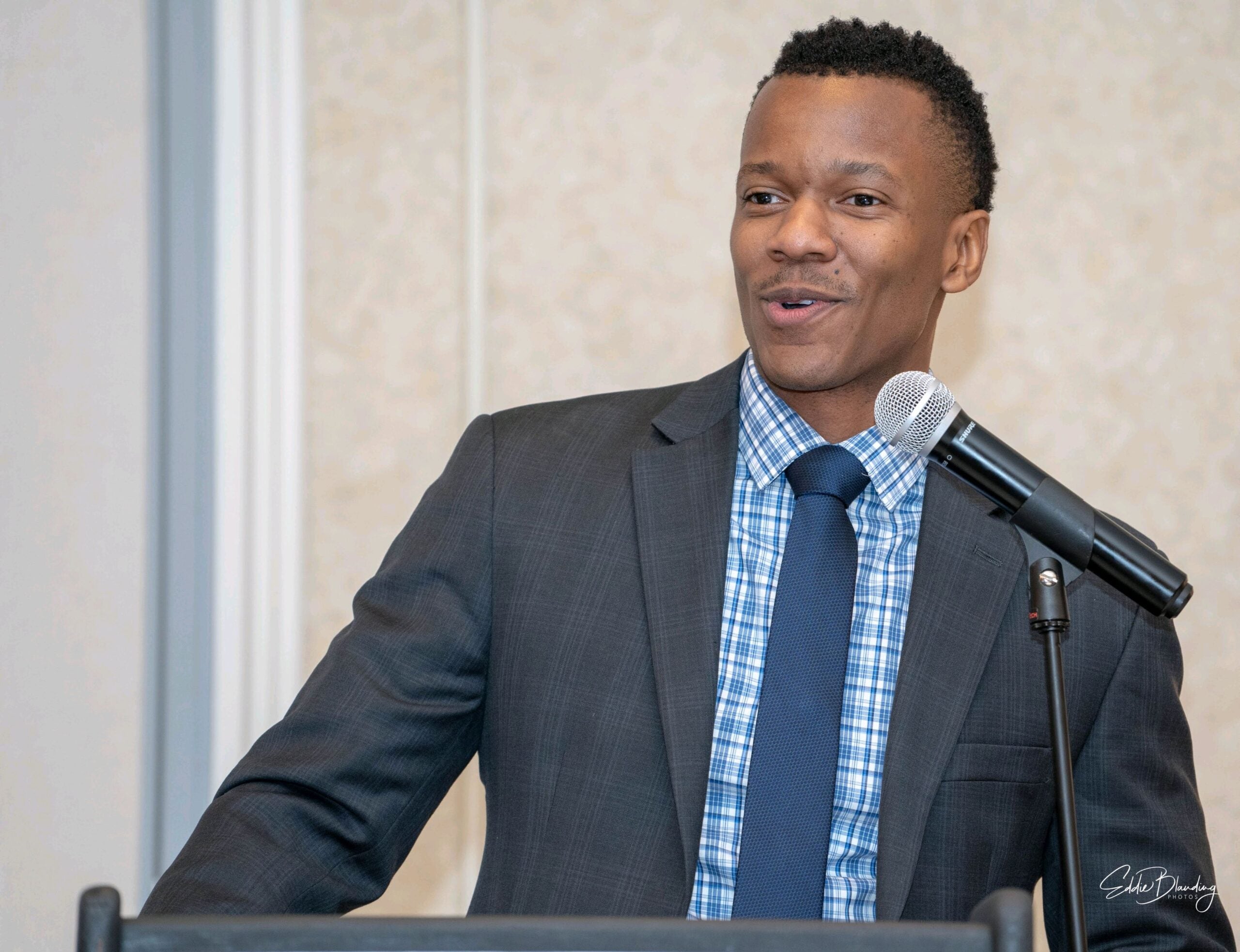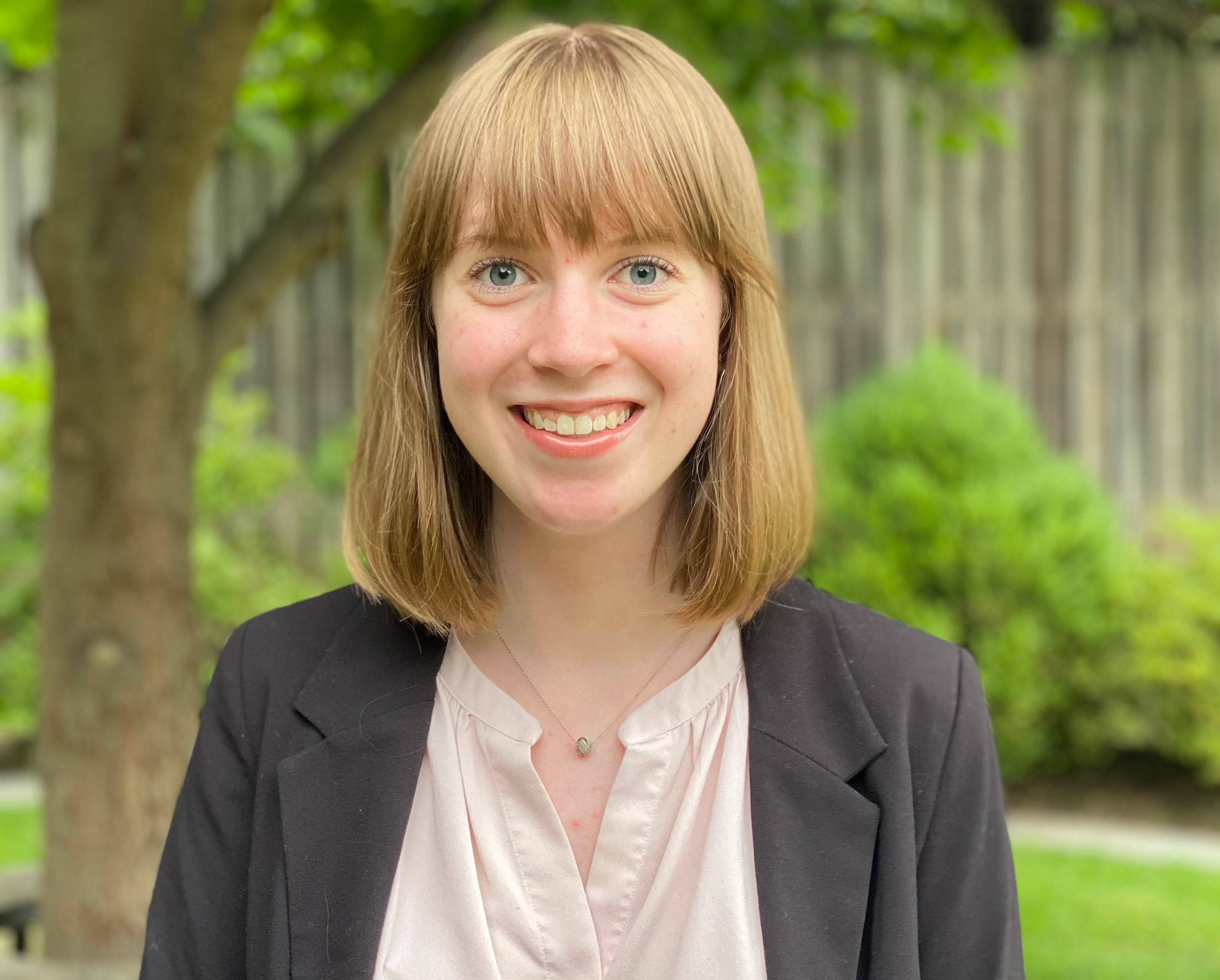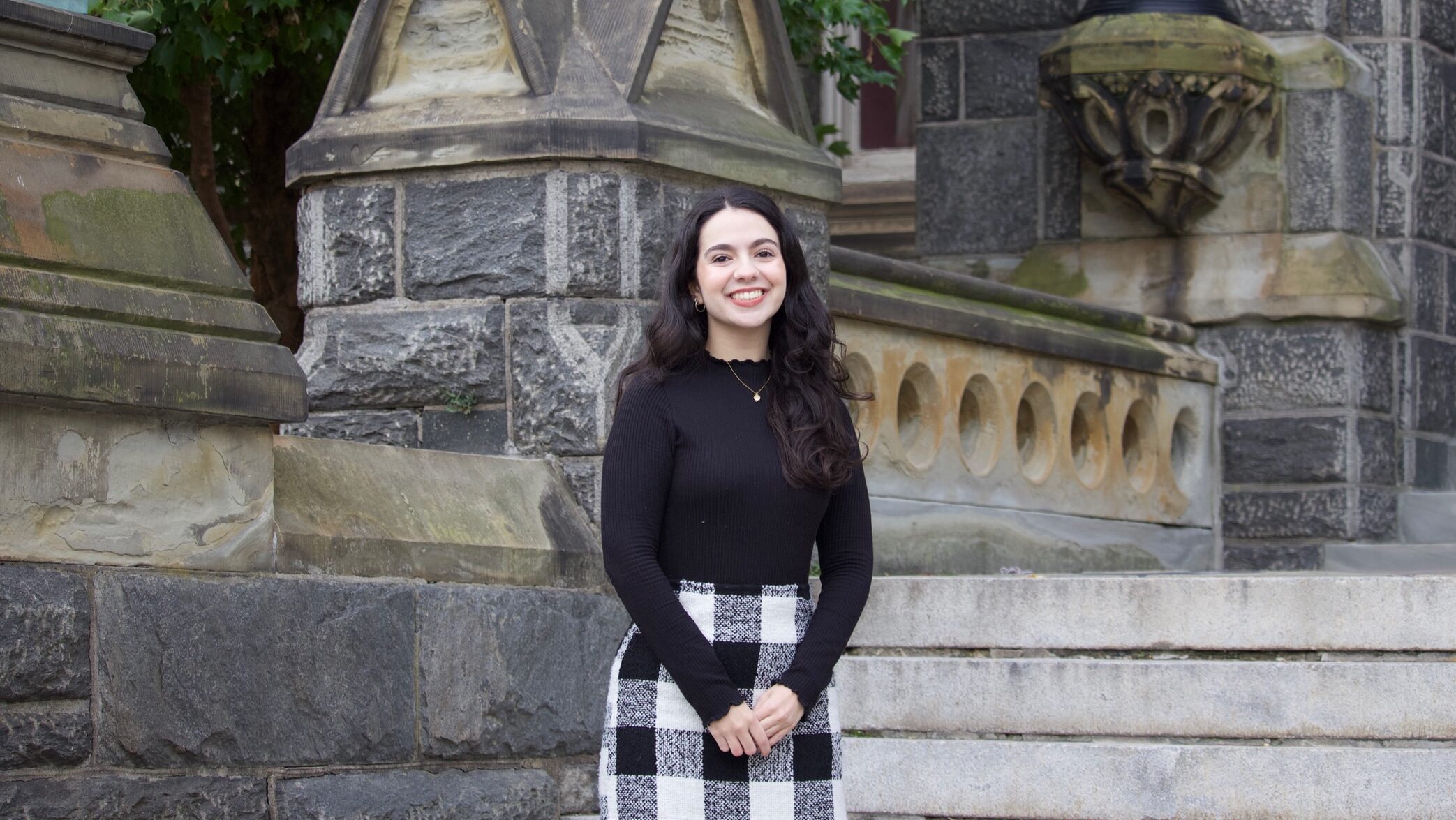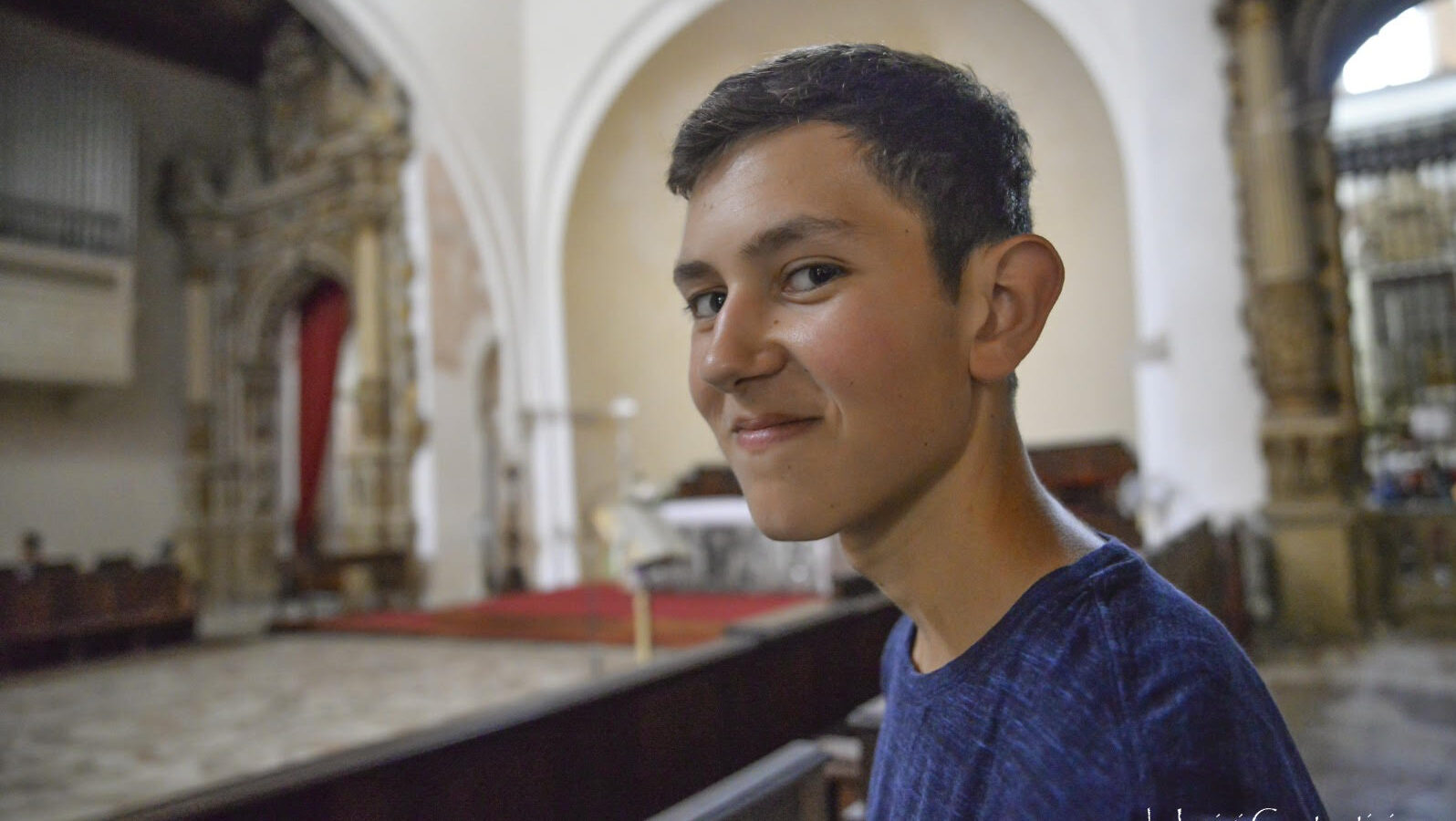
Congratulations, future Hoyas!
Founded in 1789, Georgetown University’s College of Arts & Sciences is the oldest school at Georgetown University. With more than 3,500 students, it is also the university’s largest undergraduate school, and is the cornerstone of the university. The College of Arts & Sciences encourages students to take time to explore and reflect through their studies, a process that will help each student become a well-rounded, balanced, and intuitive person. Professors challenge students to think critically and push them to find answers. This is the hallmark of a liberal arts education and one that will serve them well throughout their life.
Did You Know…
Liberal Arts in the Jesuit Tradition
“Every language has its own natural poetry and I was attracted to how much more richly you can understand the culture, if you start to learn the way that they natively express things,” Hannah von Wiehler (C’15) says. “Georgetown helped me so much in regards to my literature and language skills and I’m glad that I ended up on the nontraditional path to being a conductor that I did. Had I known that I wanted to conduct before starting school, I would have gone to conservatory for classical music training. But I am so glad I didn’t know because I actually think Georgetown gave me an incredible education for being a conductor.”
Read Hannah’s Story Learn More About the Faculty of Literatures, Cultures, and Language StudiesA Scholarly Community
“In order to achieve racial equity and justice we need innovative, imaginative, and integrated critical thinking, writing, listening, and verbal skills. A liberal arts education at Georgetown, in the spirit of educating the whole person, not only builds, develops, and encourages these skills, but it prioritizes these abilities for students to succeed at Georgetown and beyond.”
Read More About Robert Patterson, Professor of African American Studies Learn More About the Racial Justice InstituteSeminars for First-Year Students: Small Cohorts, Signature Courses
As a first-year student in the College, you have access to a selection of unique courses and academic programs designed exclusively for incoming students. These were created to enhance learning and build your personal academic community.
SEMINARS FOR FIRST-YEAR STUDENTS: SMALL COHORTS, SIGNATURE COURSES
As a first-year student in the College of Arts & Sciences, you have access to a selection of unique courses and academic programs which will introduce you to faculty mentors and build your personal academic community. These were created to enhance learning and build your personal academic community.
HAGER SCHOLARS
The Hager Scholars program is designed for students with a strong interest in language study. Over the course of this yearlong program, Hager Scholars complete coursework in the language(s) of their choice, as well as courses that fulfill core requirements in other disciplines, taught by faculty who are particularly interested in the ways that language study informs their fields. In addition, Hager Scholars complete a biweekly, yearlong colloquium designed to introduce students to language faculty, and to expose them to the many opportunities available to language scholars.
IGNATIUS SEMINARS
Ignatius Seminars offer students an enormous range of questions and subjects to explore, each course designed by a faculty member invited to teach something personal, something intimately meaningful to them. Close faculty-student interaction, reflection, whole person education, and cura personalis characterize our Ignatius Seminars, which in turn provide an important orientation to our deepest educational values and priorities.
WAYS OF KNOWING SEMINARS
Ways of Knowing Seminars engage with intellectual history, or the organization and evaluation of knowledge, or histories of professions, disciplines, and institutions. Through these seminars, faculty coach critical reading and research habits that will begin to address the problem, to form students attuned to truth seeking, self-aware and self-critical in their own ways of knowing.
INTRODUCTORY LANGUAGE AND CULTURE SEMINARS
Introductory Language and Culture Seminars provide foundational speaking, understanding, reading, and writing skills to those new to the. study of a chosen language. In Fall 2025, students may take a tour of Italy in the “Giro d’Italia” Seminar or explore French without borders in the Français sans Frontières Seminar. As students gain language proficiency, they will also explore the vast culture, history, politics, and present day challenges of the Italian or French-speaking world.
The Power of Discovery
“The History Department at Georgetown University has provided me with invaluable mentorship over the last four years. I came to the Hilltop not knowing what type of history I wanted to specialize in — thanks to the mentorship and dedication of many professors, I discovered a newfound love for medieval women’s history. Now, I am a global medieval studies minor and working to complete an honors thesis thanks to the department’s steadfast support and dedication to mentorship.”
Read Katie’s Story Visit the Department of HistoryIdol Family Fellow and Co-Director Jenny Linares Brings Community to the Hilltop
After participating in the Idol Family Summer Fellowship Program, Jenny Linares (C’23) found the meaning and community she had been searching for on the Hilltop. Now co-director of the fellowship program, Linares hopes to help other Georgetown students find the same sense of belonging.
During Linares’ sophomore spring, Georgetown implemented virtual learning due to the COVID-19 pandemic and though Linares was living on campus, she found it difficult to connect with the community overall. While looking for funding for a summer internship, she discovered the Idol Family Fellowship, decided to apply and was accepted. Linares says that she “loved everything about my experience.”
Royden B. Davis Fellow Justin Goldstein Conducting Research to Optimize Question Answering Results
Computer science major Justin Goldstein (C’24) was selected as a Royden B. Davis Fellow. The sophomore used this fellowship to fund his summer research on passage retrieval for question answering (QA) at Georgetown’s InfoSense Lab. Goldstein says that his work on this project “has given me great insights into how my coursework can be applied.” “It also gives me perspective on how I might shape my computer science education at Georgetown in the years ahead, … AI and Information Retrieval will likely continue to be important in the next century as people rely less on memorizing facts, and more on the tools they use to find facts. This research has allowed me to develop an interest in this subject area and it has shown me how much work there is still left to do.”
Read Justin’s Story Learn More about the Royden B. Davis FellowshipWhat’s Coming Next?
The Discover Book is now available! Be sure to check the inside back cover for a little College swag.
